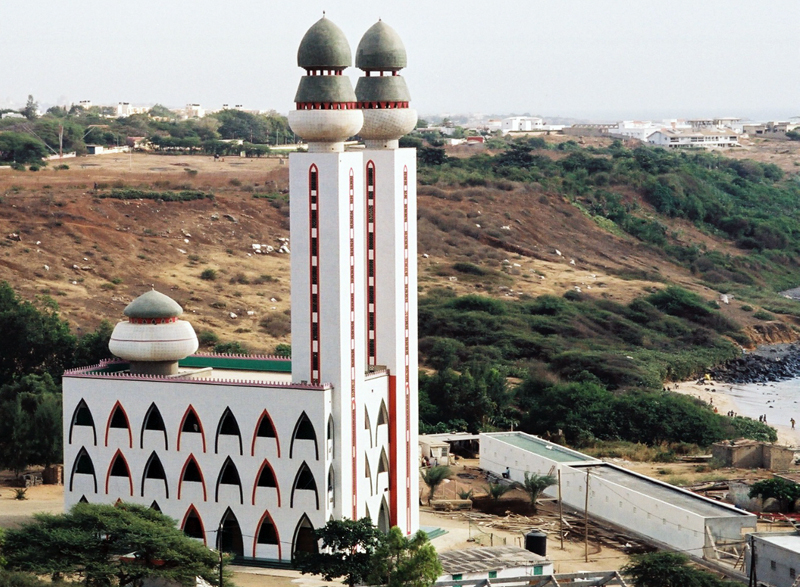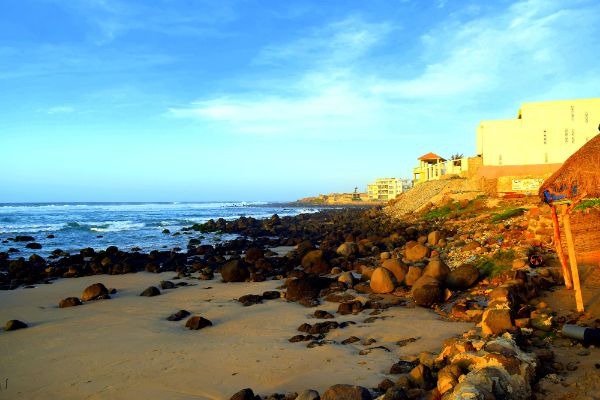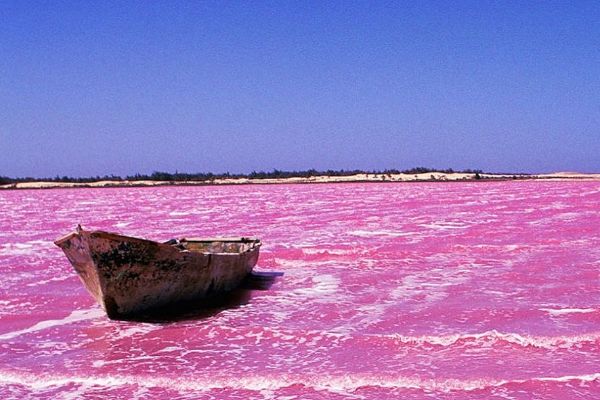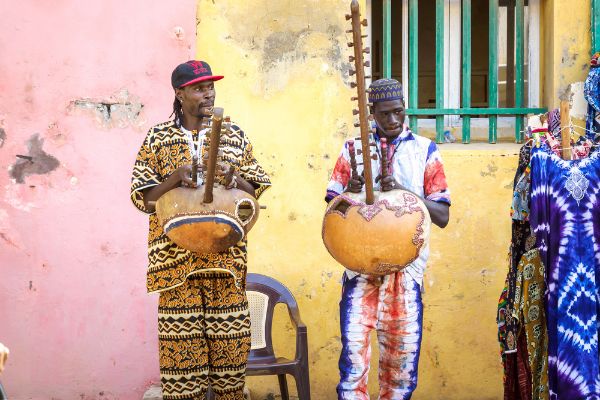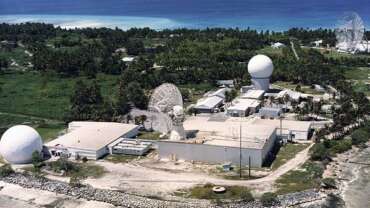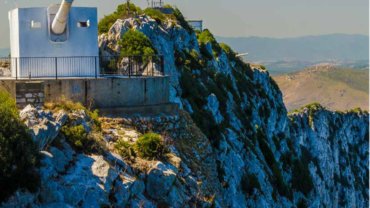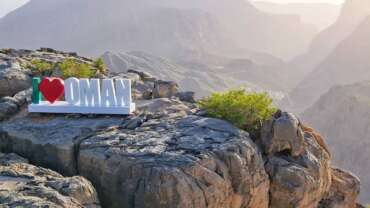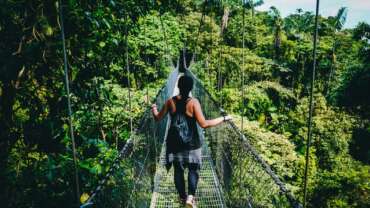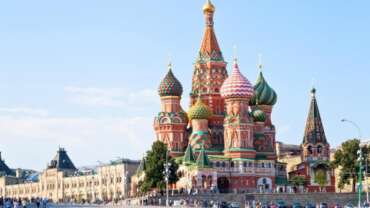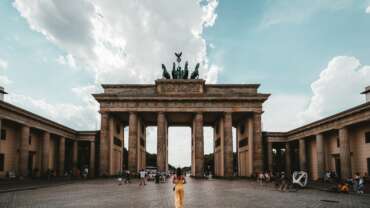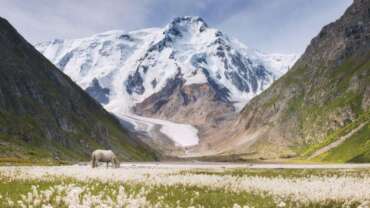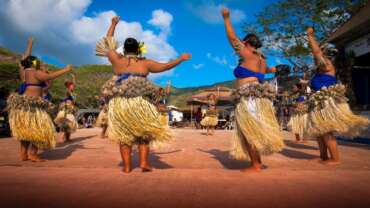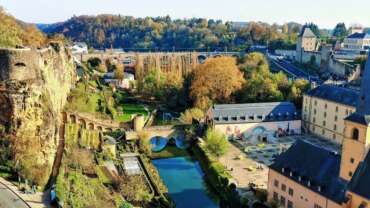Welcome to Senegal
Senegal, officially the Republic of Senegal, is a country in West Africa. Senegal is bordered by Mauritania in the north, Mali to the east, Guinea to the southeast, and Guinea-Bissau to the southwest.
History of Senegal
Senegal has been inhabited since ancient times. Paleolithic and Neolithic axes and arrows have been found near Dakar, and stone circles, as well as copper and iron objects, have been found in central Senegal. The stone circles, thought to date from the 3rd century BCE to the 16th century CE, were designated a UNESCO World Heritage site in 2006.
The Fulani and Tukulor occupied the lower Sénégal River valley in the 11th century. The name Senegal appears to be derived from that of the Zenaga Berbers of Mauritania and northern Senegal. About 1040, Zenaga Berbers established a Muslim ribāṭ (fortified religious retreat), perhaps on an island in the river; this became the base for the Almoravids, who converted the Tukulor, conquered Morocco, and crossed into Spain. The Almoravid attacks on the Soninke empire of Ghana contributed to the empire’s eventual decline. Between 1150 and 1350 the legendary leader Njajan Njay founded the Jolof kingdom, which in the 16th century split into the competing Wolof states of Walo, Kajor, Baol, Sine, and Salum. Islamic influence spread throughout the region in variable strength; it gained new impetus in the late 17th century, and after 1776 Tukulor Muslims established a theocratic confederacy in Fouta.
Portuguese navigators reached Cape Verde about 1444; they established trading factories at the mouth of the Sénégal, on Gorée Island, at Rufisque, and along the coast to the south. In the 17th century their power was superseded by that of the Dutch and then the French.
The French period
A French factory at the mouth of the Sénégal River was rebuilt in 1659 at N’Dar, an island in the river that became the town of Saint-Louis, and in 1677 France took over Gorée from the Dutch. These two communities became bases for French trading companies that bought slaves, gold, and gum arabic in the region and became homes for free Christian Africans and Eurafricans.
After two periods of British occupation, Saint-Louis and Gorée were returned to France in 1816. When attempts to grow cotton near Saint-Louis proved unprofitable, trade for gum in the Sénégal valley was substituted. In 1848 the marginal colonial economy was further disrupted when the Second Republic outlawed slavery on French soil.
In 1854 Napoleon III granted the request of local merchants for a greater French military presence and appointed Commandant Louis-Léon-César Faidherbe governor. At the same time, al-Ḥājj ʿUmar Tal, a Tukulor, conquered the Bambara kingdom of Kaarta as well as the states of Segu and Macina, but he was unable to control his home territory of Fouta because the French occupied the land. A military stalemate after 1857 led to a truce of coexistence between the two powers, although the French exploited the internal conflicts in the region after ʿUmar Tal’s death in 1864. When Faidherbe retired in 1865, French power was paramount over most of the territory of modern Senegal, with peanut cultivation and export reaping great economic benefits for the colonists.
In 1879 the French government approved a large program of railway construction (built 1882–86). One line linked Saint-Louis with Dakar through the main peanut area in Kajor. Another rail line, the Dakar-Niger line, was not completed until 1923 and facilitated access to the territory formerly controlled by ʿUmar Tal. Meanwhile, France was consolidating direct control over the rest of Senegal and its other African colonies. In 1895 Jean-Baptiste Chaudié became first governor-general of French West Africa, and in 1902 its capital moved from Saint-Louis to Dakar.
Before this new autocratic empire established its rigid administrative control over such traditional chiefs as it still tolerated, the Third Republic had recognized the inhabitants of Saint-Louis, Gorée, Dakar, and Rufisque, regardless of ethnicity, as French citizens. In 1914 the African electors succeeded in sending Blaise Diagne, an African former colonial official, as their deputy to the National Assembly in Paris. In return for assistance in recruiting African soldiers in World War I (some 200,000 in all from French West Africa), Diagne obtained confirmation of full French citizenship rights for this urban minority, even if they chose to retain their status under Muslim law. These privileges were lost between 1940 and 1942, when French West Africa passed under control of the wartime Vichy government, but were restored under the Fourth Republic (1947–58).
Two socialist deputies elected in 1946, Lamine Guèye and Léopold Senghor, at first concentrated on restoring the original French citizenship rights and then extending them to the whole Senegalese population. But political life was increasingly influenced by nationalist movements elsewhere in Africa and Asia, as well as by strong internal tensions, notably those revealed by a sustained railway strike in 1947–48. Senghor, a poet and philosopher who sought some synthesis between an authentic African identity and French civilization, built a strong political position on partnership with the leaders of the Mourides (Murīdiyyah) and other socially conservative Muslim orders, but he was increasingly driven toward claiming political independence. In 1958 the Senegalese electorate accepted his advice to vote in favour of membership in Charles de Gaulle’s proposed French Community, but two years later Senegal claimed and received independence (initially within the short-lived Mali Federation).
Independent Senegal
As president, Senghor maintained collaboration internally with Muslim religious leaders and externally with France, which continued to provide economic, technical, and military support. The economy, however, remained vulnerable both to fluctuations in world prices for peanuts and phosphates and to the Sahelian droughts, and the government found it increasingly difficult to satisfy the expectations of the working class and of a rapidly growing student body. Although Senegal remained more tolerant and pluralist than many African states, there were encroachments on political freedoms. In 1976, however, Senghor authorized the formation of two opposition parties; Abdou Diouf, to whom he transmitted presidential power in January 1981, tentatively extended these freedoms.
Under Diouf the Socialist Party (PS) maintained Senghor’s alliance with the Muslim hierarchies. When the PS secured more than 80 percent of the votes in the 1983 elections, there were complaints of unfair practice, and the eight deputies returned by the Senegalese Democratic Party (PDS) of Abdoulaye Wade initially refused to take their seats. Nevertheless, the framework of parliamentary democracy survived the continuing economic stringency of the 1980s. In 1988 Diouf’s presidential majority dropped to 73 percent, and the PDS won 17 of the 120 parliamentary seats. Charges of inequity and fraud, and considerable violence, were followed by the declaration of a state of emergency. Wade was imprisoned but was subsequently pardoned.
Diouf found it increasingly difficult to meet prescriptions for economic adjustment while trying to contain social and ethnic pressures caused by falling export values, rising costs of living, and mounting unemployment. The proclamation in 1981 of the Senegambian confederation, established after Senegalese troops marched into The Gambia to crush a military coup, was abrogated in 1989. That same year a long-standing border dispute between Senegal and Mauritania erupted into serious ethnic violence; several hundred Senegalese were massacred in Mauritania, and both countries expelled tens of thousands of expatriates. Senegalese merchants took over many of the businesses previously owned and operated by Mauritanians in Senegal. Tensions have remained high ever since, despite an agreement in April 1992 between the two countries to restore diplomatic relations. In 2000 tensions were further heightened over the issue of Sénégal River usage rights; violence was averted when the Senegalese government abandoned a controversial irrigation plan.
Generally peaceful elections in 1993 resulted in victory for Diouf and the PS. The French decision in 1994 to devalue the African franc by 50 percent negatively affected the Senegalese economy and sparked the most-serious uprisings in the country in years, led by dissatisfied urban youths. The government quickly crushed the demonstrations and arrested hundreds. The difficult economic conditions continued, exacerbated by periodic droughts and inflation. Despite the economic problems, however, the Diouf regime retained the support of the powerful Muslim leadership in the country, and the PS won legislative elections again in 1998, although opposition parties did make some gains, especially in the urban Dakar region. Wade finally won the presidency in March 2000, marking the first time since the country’s independence that a presidential candidate was elected from a party other than the PS. Wade’s victory also ushered in a peaceful and democratic transfer of power, a significant event on the African continent. He was reelected in 2007.
Initially, Wade drew wide support from a coalition of opposition parties, and in the 2001 legislative elections Wade’s coalition scored a decisive victory. Also, a new constitution that he promoted was overwhelmingly approved by voters that year. As time went on, however, dissatisfaction with Wade’s performance grew, as many were frustrated by the lack of progress in dealing with the country’s infrastructure problems and the rising cost of living. Many people were also unhappy with the 164-foot (50-metre) bronze statue that Wade had commissioned, which was unveiled in April 2010 as Senegal celebrated its 50th independence anniversary. The seminude figures of the statue offended many in the predominantly Muslim country, and the $27 million cost was an especially bitter pill to swallow when so many Senegalese were struggling.
The run-up to the February 2012 presidential election was rife with discord. In June 2011 Wade proposed that the percentage necessary to avoid a runoff in a presidential election be reduced from 50 percent to 25 percent, which would make it easier for a candidate to be elected without a majority of the vote. The proposal was met with criticism and spawned several violent protests; Wade withdrew the proposal later that month. A proposal to create the position of an elected vice president and to allow the presidential and vice presidential candidates to run on the same ticket evoked criticism as well and was also dropped. Another significant source of preelection discord was Wade’s intention to stand in the 2012 election, despite the fact that the 2001 constitution limited presidents to two terms. Since Wade had been elected a year prior to the promulgation of the 2001 constitution, he maintained that the two-term limit should not be applied retroactively to include his first term. The issue was debated by the country’s Constitutional Council, which in late January 2012 declared that Wade’s bid for a third term was valid. The council also rejected the candidacy of presidential aspirant Youssou N’Dour, an internationally known musician and popular figure in Senegal. News of the council’s decisions, particularly that which allowed Wade to run for a third term, drew much domestic and international criticism and resulted in large demonstrations of protest in Dakar and elsewhere in the country.
Senegalese voters cast their ballots on February 26, 2012, choosing from more than a dozen presidential candidates. Wade received the most votes, taking 34.82 percent; his nearest challenger, former prime minister Macky Sall, won 26.57 percent. A runoff election between Wade and Sall was held on March 25. Early results indicated a clear victory for Sall, and Wade conceded defeat later that night. Sall had won about 66 percent of the vote and was inaugurated on April 2, 2012.
In 2016 Sall proposed several changes to the constitution, which included reducing the presidential term from seven years to five years, limiting a president to two terms in office, and expanding the mandate of the National Assembly. He presented his proposals to the Constitutional Council, which rejected the proposal for Sall’s current term as president to be reduced. The other suggested changes were put to a referendum vote, held on March 20, 2016. More than 60 percent of the voters cast their ballots in favour of the proposed changes. Legislative elections in July 2017 saw Sall’s ruling coalition winning three-fourths of the National Assembly seats.
Sall’s term in office was marked by a flurry of development activity, much of it under the banner of the “Emerging Senegal” project. The ambitious plan included the construction of Diamniadio, a planned city near Dakar that was intended to ease congestion in the capital by providing new space for government, business, and industry. The new city’s industrial park was deemed a special economic zone, making it attractive for business investment. The country’s transportation network was expanded and repaired. Electricity sources were upgraded and extended to some rural areas that previously did not have access. A new international airport east of Dakar, under construction since 2007, opened in 2017.
In contrast to the positive development evident under Sall were the allegations that he was intolerant of dissent. There were a number of protests against Sall and his administration; some were forcefully put down. A popular opposition figure, Dakar’s mayor Khalifa Sall (no relation to President Sall), was arrested in 2017 on charges of having embezzled public funds and was later convicted; he denied the charges, claiming that they were politically motivated. A 2018 election law that made it more difficult to become a presidential candidate garnered criticism for essentially limiting the number of potential challengers to Sall in the 2019 presidential election. Furthermore, two of Sall’s most prominent would-be challengers, Khalifa Sall and Karim Wade, were barred from standing in the election because of their criminal records. Sall faced only four other challengers in the presidential election held on February 24, 2019. He was reelected with 58 percent of the vote.
A long-standing challenge to the Senegalese government was the conflict in Casamance, the southern area physically isolated from the rest of the country by The Gambia. Since 1982 a rebel group, primarily based in the Diola areas, had been fighting for independence, and many people died as a result of the fighting. The Senegalese government refused to negotiate with the rebels, and a 1998 attempted military coup in neighbouring Guinea-Bissau, which involved guerrillas from Casamance, was repressed by government troops and led to renewed violence in the area. The leader of the main rebel forces declared the war over in 2003, and a peace agreement was signed in 2004, but some rebel factions continued to fight. After Sall took office in 2012, he renewed government peace talks with the rebels, and in 2014 one faction declared a unilateral cease-fire in support of the ongoing talks.
People of Senegal
Ethnic groups
The Wolof comprise about two-fifths of the total population, and their language is the most widely used in the republic. Under the traditional Wolof social structure, similar to those of other groups in the region, people were divided into the categories of freeborn (including nobles, clerics, and peasants), caste (including artisans, griots, and blacksmiths), and slaves. The Serer, numbering slightly more than one-seventh of the population, are closely related to the Wolof. The Tukulor make up more than one-fourth of the population. The Tukulor are often hard to distinguish from the Wolof and the Fulani, for they have often intermarried with both. The Diola and the Malinke constitute a small portion of the population. Other small groups consist of such peoples as the Soninke, rulers of the ancient state of Ghana; the Mauri, who live primarily in the north of the country; the Lebu of Cape Verde, who are fishermen and often wealthy landowners; and the Basari, an ancient people who are found in the rocky highlands of Fouta Djallon.
Languages
Some 39 languages are spoken in Senegal, including French (the official language) and Arabic. Linguists divide the African languages spoken there into two families: Atlantic and Mande. The Atlantic family, generally found in the western half of the country, contains the languages most widely spoken in Senegal—Wolof, Serer, Fula, and Diola. Mande languages are found in the eastern half and include Bambara, Malinke, and Soninke.
Religion
Islam is the religion of the vast majority of the population, practiced through involvement in groups known as Muslim brotherhoods. In Senegal the three primary brotherhoods are the Qadiri (Qadiriyyah), the Tijani (Tijāniyyah), and the Mourides (Murid, Murīdiyyah). Spiritual leaders known as marabouts figure prominently in Muslim brotherhoods and are important in maintaining the social status quo. Touba, Senegal’s most sacred city, is the birthplace of Amadou Bamba M’backe, the founder of the Mourides brotherhood. A small segment of the population follows traditional religions. The Diola have a priestly class that directs ancestor veneration. Christianity is practiced by a growing but still very small population. Christianity came to the region beginning in 1486, and the contact was renewed with the arrival in 1819 of nuns of the order of St. Joseph of Cluny. Most followers are Roman Catholic, and the small number of Protestants are largely immigrants from Europe.
Art & Culture of Senegal
The arts
Art, sculpture, music, and dance remain typically Senegalese in expression. Sculpture is characterized by abstraction and by the ideogram, through which the artist de-emphasizes the material aspect to give free rein to ideas and feelings; a sculptured gazelle, for example, may be represented solely by its horns and its neck, or an elephant may be depicted only by the immense fan formed by its ears and its trunk. Similarly, because traditional Senegalese music is not written down, the imagination of the musician is critical. This is especially true for griots. Once court artists, they are today a predominantly hereditary caste of traditional West African troubadour-historians who perform a variety of social and cultural functions—from genealogy and praise singing to acting as key celebrants of village ceremonies. Accompanying themselves, usually with a kora (a long-necked, multistringed instrument), griots recite poems or tell stories, often of warrior deeds, that contain a core of ideas around which they may improvise. Dance also owes much to improvisation, though professional troupes such as the Ballet National du Senegal, founded by Léopold Senghor in 1960, have created highly choreographed presentations that draw on many ethnic traditions.
Contemporary Senegalese music combines traditional styles, instruments, and rhythms with those of Western music. One of the first bands to blend these musical styles was the Star Band, established by Ibra Kassé in the early 1960s. Orchestra Baobab, founded in 1970, fuses Latin American elements—especially Cuban—with African languages and rhythms. Youssou N’Dour, one of Africa’s most famous recording artists, achieved worldwide fame with his bands Étoile de Dakar and Super Étoile de Dakar. He is known for blending traditional mbalax (a type of drumming) and more-modern elements of such Western styles of music as rock and pop. Another internationally known recording artist is Baaba Maal, a Fulani musician who often uses traditional African instruments but also draws from several styles of Western music, notably pop and reggae.
Senegalese literature is personified by Senghor, the former president who in 1983 became the first person from sub-Saharan Africa to be elected to the Académie Franƈaise. A poet and philosopher as well as a politician, he was associated with Negritude, a literary movement that celebrated the traditional culture of sub-Saharan Africa. In addition to Senghor, its practitioners include Ousmane Socé, David Diop, Sheikh Hamidou Kane, and Abdoulaye Sadji, all of whom are known for works that imaginatively reflect the flavour of Senegalese life. Mariama Bâ, one of Senegal’s few women writers, is known for her novel Une si longue lettre (1980; So Long a Letter). Another noted Senegalese author, Ousmane Sembène, wrote the classic Les Bouts de bois de Dieu (1960; God’s Bits of Wood), a fictional account of a strike of African railroad workers that occurred in the late 1940s.
About the time of that book’s publication, Sembène, eager to reach a larger, nonliterate Senegalese audience, began making motion pictures, first in French and then in his native Wolof language. His films include La Noire de… (1966; Black Girl), depicting the virtual enslavement of a Senegalese servant by a French family; Ceddo (1977; Outsiders), portraying the clash between traditional African and Islamist beliefs; Guelwaar (1992), a political thriller that examines Christian-Muslim conflict; and Moolaadé (2004; Protection), about the controversial practice of female genital cutting (also referred to as female genital mutilation or female circumcision). Other prominent Senegalese filmmakers include Djibril Diop Mambéty, Abacabar Samb-Makharam, and Safi Faye, the first sub-Saharan African woman to direct a feature film, Kaddu beykat (1975; Letters from My Village).
Daily life and social customs
Collectivism is central to traditional Senegalese culture, which remains very much alive. Although written forms of languages spoken in Senegal have existed for some time, the country’s cultural heritage is preserved through oral tradition, mainly by the oldest men of the community, who are at the summit of Senegal’s hierarchical society. Rites and initiations are actively practiced in rural areas—for example, by the Basari of Kédougou. Among Muslims, youths must be circumcised before being accorded the responsibilities of manhood. Even though the constitution prohibits discrimination by sex, traditional religious beliefs in many parts of the country prohibit women from inheriting land, and society generally recognizes men as the heads of the households.
A wide variety of foods are available in Senegal. Millet, couscous, and rice form the basis of many meals; peanuts and fresh seafood are common sources of protein; and chiles and palm oil are used for flavouring. Common dishes include thiéboudienne, rice served with a fish and vegetable sauce; yassa au poulet or yassa au poisson, grilled chicken or fish in an onion and lemon sauce; and mafé, a peanut-based stew. Meals are generally eaten communally from a single serving dish, as they are in many parts of West Africa, and a code of conduct called fayda ensures proper sharing. Senegalese beer is produced primarily by breweries in Dakar.
Independence Day is celebrated on April 4th. The country also celebrates various Christian and Islamic holidays.
Rural market & Fadiouth shell Island
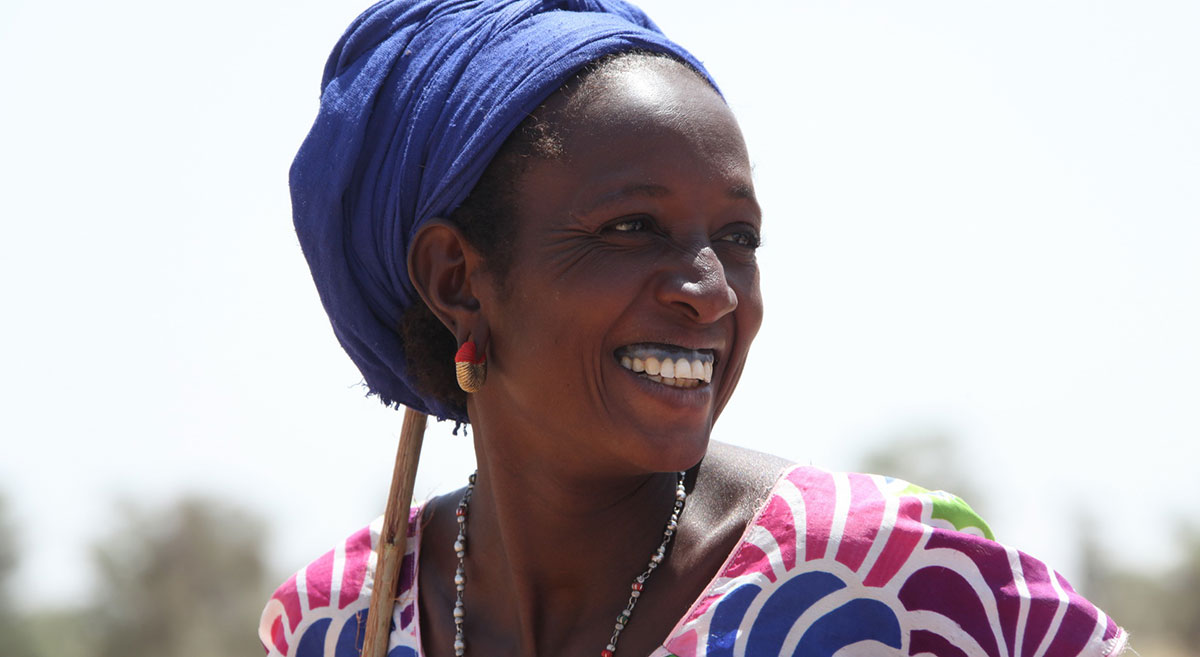
After about 2 hours driving to south of Dakar, visit a bush market, meeting place for Sérères villages: change of scenery guaranteed! Unforgettable smells and colors, seasonal fruits and vegetables, poultry, sheep, cereals, colorful fabrics…
Lunch in Joal and visit the island of Fadiouth by pirogue, famous for its cemetery of shells and its millet granaries on stilts.



